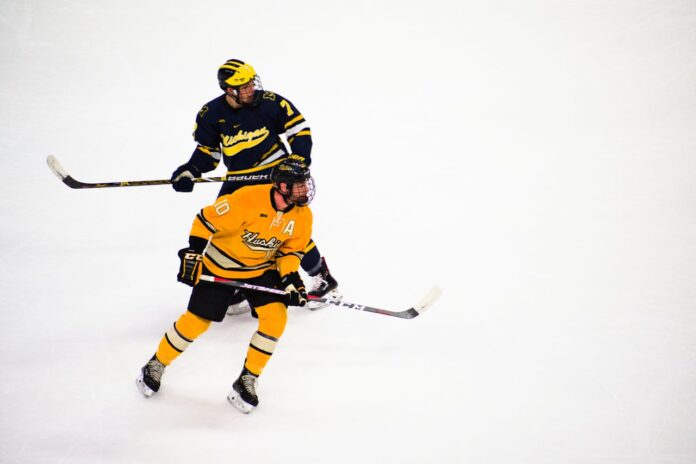In a suit filed last week, in the U.S. District Court in Buffalo, New York, the NCAA was accused in a class-action lawsuit of specifically shunning Canadian Hockey League players from NCAA Division I competition. The case was filed on behalf of Rylan Masterson, from Fort Erie, Ontario, who lost his NCAA eligibility when he was 16 after he appeared in two exhibition games for the Ontario Hockey League’s Windsor Spitfires. The NCAA categorizes the CHL’s three associations (including Ontario Hockey League) as professional leagues under their bylaws and hence players like Masterson cannot compete at the NCAA DI level. The suit lists ten Division I schools including Canisius, Niagara, Rochester Institute of Technology, Boston University, Boston College, Denver, Quinnipiac, Notre Dame, Stonehill and St. Thomas.
Masteron cites several concerning issues in his suit against the NCAA. He raises the issue that the NCAA forces players as young as 16 to make decisions about their future and hence deterring them from the CHL so they can maintain their NCAA eligibility. The second issue raised is how the NCAA bylaws has specifically subdued the CHL’s compensation by eliminating the competition between the NCAA and the CHL for the top players. CHL players receive a maxed amount of $600 per month for living expenses while NCAA players may receive scholarships, stipends, and now NIL compensation. Finally, it raises the issue that in sports other than ice hockey and skiing, the NCAA allows for competition eligibility despite the players being professional in that sport. The suit even further acknowledges that there have been ice hockey players who have played professionally in Europe and still maintain their NCAA eligibility. Masterson argues that he has suffered due to the NCAA bylaws and hence calls the NCAA’s conduct in banning CHL players “unlawful.” The NCAA and CHL have not commented on the suit.
In conclusion, as we continuously monitor the legal challenges the NCAA faces. This specific suit shows how the NCAA’s control of amateurism in a specific sport may be slowly eroding. Again, if anything the implications of this lawsuit may have very positive results for ice hockey players in Canada whether they get pay raises for playing professionally or can play ice hockey, get an education and earn NIL money at the NCAA. Stay tuned to see how this case unfolds.
If you or a family member are a student-athlete interested in participating in NCAA sports or are a current NCAA athlete looking for NIL representation please contact Student Athlete Pathways

